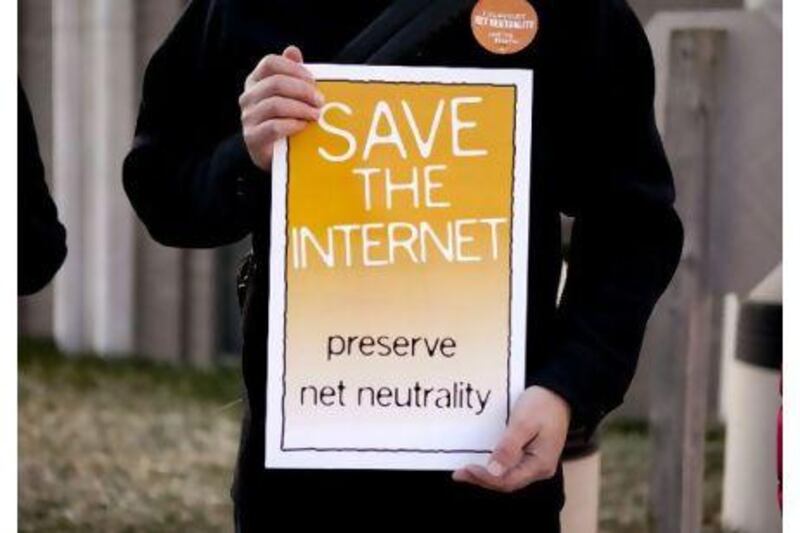Information technology often brings together innovative hobbyists seeking "to do some good".
Over a period of time their labours of love create new industry elements the rest of us consume. The technology migrates from accessible free channels created by entrepreneurs to tightly controlled ones managed by a few corporations for which the pursuit of profit is the driving force.
This is the view of Professor Tim Wu, of Columbia University, in his new book The Master Switch. He says this progression from an open to a closed system, which he terms "the cycle", has happened to the telephone, radio, television and movie industries. And now it's happening with the internet.
The cycle occurs because the industries affected are based on networks: the telephone sector is based on physical fibre optic and copper networks running under the oceans and across land.
The movie business is also based on networks owned by a few powerful film studios; it encompasses their production facilities, the multiplexes they own or over which they exert an influence, plus the post-cinematic distribution channels, such as paid-for download websites, DVDs, satellite and cable pay-per-view channels and those operated by hotels and airlines.
According to Prof Wu, once organisations begin to build such networks and gain control over them, they start to drift towards a monopolistic state. History shows that if governments are not involved in these industries by then, they soon become so. Prof Wu says entrepreneurs and regulators eventually smash this cosy, closed system and the cycle starts once more. Each of the industries he analyses in his book has become a monopoly, duopoly or cartel, followed by governmental intervention or entrepreneurial disruption.
The internet is undergoing a change; in the future a few large corporations will probably tightly manage how and what data flow between users and between companies. This will result in the abandonment of a central axiom on which the internet was built - the concept of "net neutrality".
Net neutrality means whatever the content - e-mail, images, phone calls or video - travel over the internet is equally available. Also, internet service providers (ISPs) delivering content to users must treat all of the data (websites, content, platforms) in the same way. They cannot prioritise one type of traffic or content provider over another.
Therefore, a company such as Microsoft cannot pay an ISP to make sure it prioritises searches using its Bing engine rather than Google. Otherwise those who could pay, generally large companies, would have an unfair advantage in reaching internet users against, say, smaller firms. So net neutrality is a big deal.
However, quietly, in the period a few days before Christmas, the Federal Communications Commission (FCC) in the US announced it was upholding the concept of net neutrality for fixed-line broadband - but not for mobile networks.
The announcement was the culmination of a long-running saga in which a number of major corporations such as Google and Verizon were accused by public interest groups in the US of lobbying the FCC to abandon net neutrality.
When The New York Times originally broke the story last summer, that the FCC might abandon net neutrality, it resulted in protesters marching on the commission's offices and holding demonstrations outside the buildings of the corporations allegedly concerned.
In a recent twist, the FCC issued a press release on December 21 titled: FCC acts to preserve internet freedom and openness. And for fixed-line broadband 'Rule 3: No Unreasonable Discrimination' of its official statement, that appears to be the case. "A person engaged in the provision of fixed broadband internet access service, insofar as such person is so engaged, shall not unreasonably discriminate in transmitting lawful network traffic over a consumer's broadband internet access service. Reasonable network management shall not constitute unreasonable discrimination," the FCC statement says.
The FCC regards reasonable network management as: ensuring network security and integrity; addressing that which is harmful to the network; dealing with traffic that is unwanted by users; and reducing or mitigating congestion on the network.
What has angered public interest groups, and what looks likely to result in legal challenges against the FCC ruling, is that it has fudged the issue of net neutrality when it comes to mobile networks. This is important because internet access is increasingly being sought by users over mobile networks.
The FCC defends its decision by citing how competitive the mobile industry is today and, bizarrely, the prevalence of operating systems such as Android. "In light of these considerations, we conclude it is appropriate to take measured steps at this time to protect the openness of the internet when accessed through mobile broadband," the commission says.
This paves the way for mobile operators to charge users an additional amount if they want to access services such as Facebook or YouTube through their mobile devices.
Equally, mobile operators could also charge Facebook, Skype and others to provide their content on mobile networks. Both scenarios abandon net neutrality.
The internet is moving through a new phase of the cycle, as Prof Wu would put it. But it is one in which the principles that have been enshrined in the internet from inception are going to be broken.
Rehan Khan is a business consultant and writer based in Dubai





